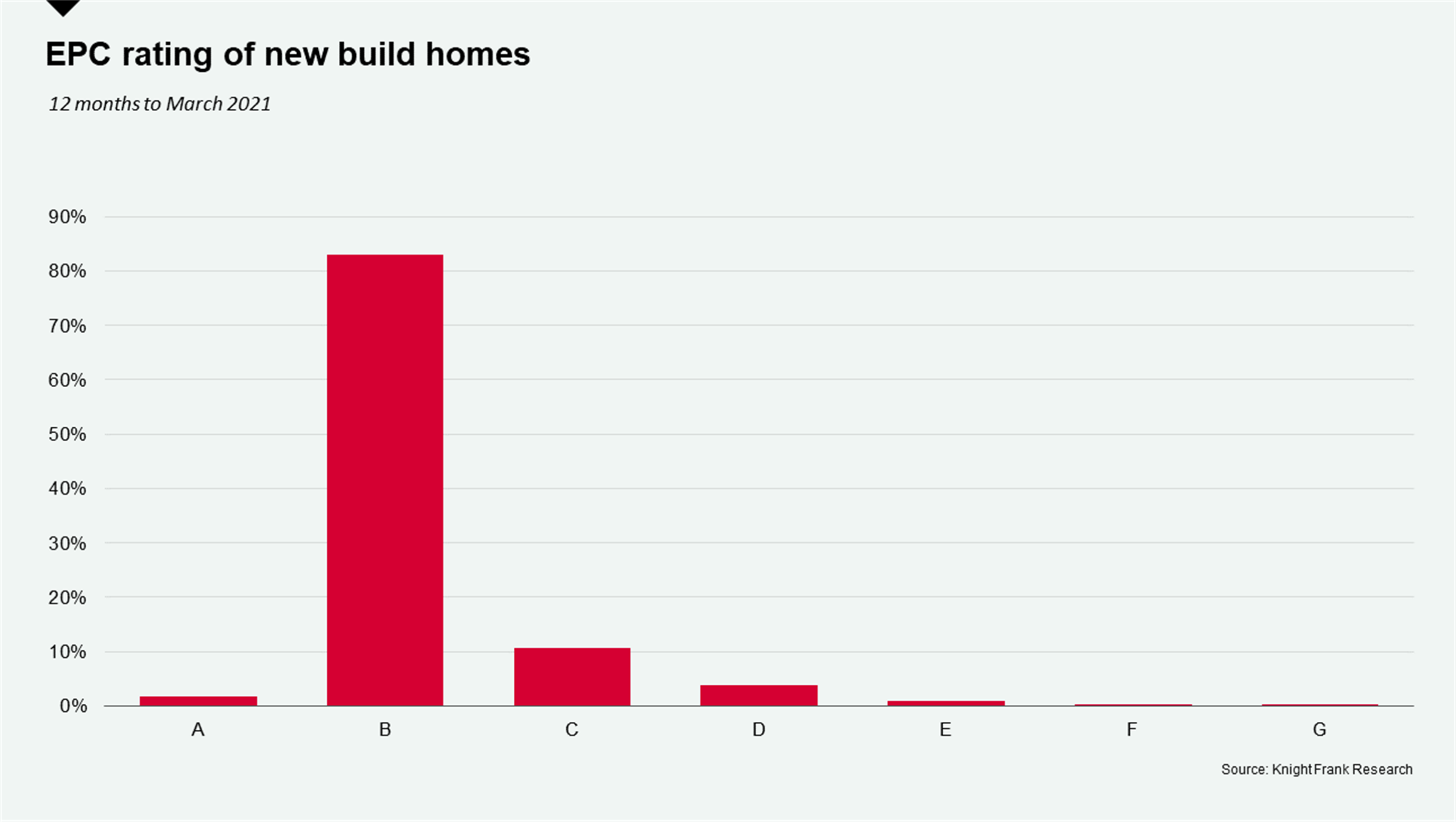The race is on for net zero. So does the new homes market stand to benefit?
Demand for new build homes is set to rise when the hunt for energy efficiency accelerates.
3 minutes to read
New build homes could see an uptick in demand as energy efficiency becomes a greater priority in the race to net zero.
Over the past year, over 85% of registered new dwellings were awarded an energy performance rating of A-B. To put this in perspective, there are currently about 29 million homes in the UK, of which 19 million have a rating of D or lower, according to the Climate Change Committee.
So, given the committee has proposed all homes for sale should attain a minimum EPC rating of C from 2028, the question is to what extent are buyers already prioritising greater energy efficiency in their search for a home?
We have been tracking buyer attitudes through regular surveys of our clients. Over half of respondents to Knight Frank’s latest sentiment survey said the energy efficiency of their next home is more important now compared to before the start of the pandemic, with only 1% saying it was less important and 46% selecting 'no change'.
Despite this, the majority of homeowners said they are currently seeking older homes – with only 17% looking for new build property. This suggests that it will take time for more buyers to shift their focus to new homes. Eventually, as net zero deadlines approach, and government policy hardens, it will be interesting to see whether this accelerates demand for new build property.
Furthermore, with more new homeowners planning to work more from home, the cost of energy will also be a higher priority. In total, 54% said they planned to work from home more frequently than they did before the start of the pandemic.
In total, just over 30% said that the latest lockdown had made them more inclined to move home within the next 12 months.
Earlier this year, 40% of respondents to Knight Frank’s previous sentiment survey, which was open throughout February said the environmental impact and carbon footprint of a home had become more important.
While lower than the 70% who rated internet speed as well as access to a garden or outside space as more important, this already showed how the environmental agenda is gathering pace, even from the perspective of end-users.
Race to net zero
Increasing awareness over energy efficiency in a residential context, comes as the government seeks to transition to net zero by 2050. A fiscal risks report from the Office for Budget Responsibility in July set out the challenges, suggested that decarbonising domestic heating will make up a significant proportion of the required investment to cut building emissions. In total, the built environment will require investment of about £362 billion – or about 28% of the total investment cost of reaching net zero.
Part of the issue centres on uncertainty over appropriate technology, as well as a huge skills challenge and need for innovative policy ideas.
The government has an ambitious target for residential heat pump installations to reach 600,000 by 2028. The Construction Industry Training Board estimates that to achieve this, by 2028 an additional 86,000 plumbers will be required, with an extra 350,000 full-time equivalent construction sector jobs needed over the next decade.
Housebuilders are therefore under increasing pressure to reduce carbon emissions. Last month, the UK’s largest housebuilders, alongside suppliers, regulators and environmental groups, agreed to a sector-wide delivery plan to meet the government’s climate change targets. The delivery plan, agreed through the Future Homes Task Force, sets a goal to start building the first homes that are zero carbon ready and sustainable by 2025.
